![General Lloyd J. Austin III at his confirmation hearing. [Source: euractiv.com]](https://covertactionmagazine.com/wp-content/uploads/2021/04/general-lloyd-j-austin-iii-at-his-confirmation-he.jpeg)
[Editor’s Update- As of July 8, 2021, the Pentagon had awarded Raytheon over $10 billion in contracts since Lloyd J. Austin III took over as Defense Secretary. This total includes a single $3.12 billion contract for production and supply of the F-15 jet]
The Pentagon has awarded the defense giant Raytheon Technologies over $2.36 billion in government contracts since Secretary of Defense Lloyd Austin III’s confirmation on January 22nd.
Austin was on Raytheon’s board of directors prior to his confirmation.

Austin at the time had made a commitment to resign from Raytheon’s board and recuse himself from all matters concerning Raytheon for four years and agreed to divest from his financial holdings in the company, amounting to between $500,000 and $1.7 million in stock.
These initiatives, however, have not prevented Austin from using his position to bolster Raytheon’s fortunes. Nor those of other defense contractors on whose board he has sat such as Booz Allen Hamilton, the world’s “most profitable spy organization,” according to Bloomberg News, and Pine Island Capital, a private equity firm that invests in military industry.[1]
At Austin’s nomination hearing, Senator Elizabeth Warren (D-MA) questioned him about his ties to Raytheon—whose headquarters are based in Warren’s home district (Waltham, Massachusetts).
A year earlier, Warren had proposed legal changes to strengthen ethics at the Defense Department by blocking the revolving door between the Pentagon and giant defense contractors like Raytheon, including by prohibiting big defense contractors from hiring former Pentagon officials for four years after they leave government.

Warren paradoxically voted to confirm Austin’s appointment as Defense Secretary—even though he embodies the danger of the revolving door.
Mark Pocan (D-WI), who with Barbara Lee wrote a letter in November 2020 to President-elect Joe Biden requesting that he nominate a Secretary of Defense with no previous ties to weapons manufacturers, stated that “American national security should not be defined by the bottom lines of Boeing, General Dynamics and Raytheon.”

With men like Austin at the helm, however, it is very clearly being defined in this way.
Raytheon
Reporting revenues of more than $97.5 billion in 2020, Raytheon began its corporate life in 1922 as the American Appliance Company, developing refrigerators and radio parts and making advances in vacuum tube technology and related electronics. The company was drawn into military contracting during World War II when it manufactured magnetron tubes for use in radar systems.

One of the company founders, Vannevar Bush, became president of the Massachusetts Institute of Technology (MIT) and chairman of the U.S. Office of Scientific Research and Development (OSRD) during World War II, which initiated the Manhattan Project that led to the development of the atomic bomb.

Today, Raytheon is best known as the maker of Patriot and Tomahawk missiles.
It has also been a pioneer in the development of surface-to-air and air-to-air missiles and precision weapons—including guided missiles and laser-guided bombs—and manufactures air-launched nuclear missiles that are part of the U.S. nuclear triad.

In 2003, Raytheon put out a press release bragging that half of all air-to-ground precision guided missiles (PGMs) used by coalition forces in Operation Iraqi Freedom were made by Raytheon.
Raytheon was also the first major defense contractor to sell weapons to Saudi Arabia, selling the kingdom over 1,000 cluster bombs designed to maximize civilian casualties between 1970 and 1995. The company further hired members of the Saudi Royal Family as consultants, and opened a branch in Riyadh in 2017.


After the Yemen war began in 2015, Raytheon, according to an analysis by The New York Times, booked more than $3 billion in new bomb sales to the Saudis, causing its stock prices to increase from about $108 to more than $180 per share.

In 2019, Raytheon sold an estimated $8 billion in weapons to Saudi Arabia and the United Arab Emirates, which are centrally involved in the war in Yemen.

After an October 2016 Saudi airstrike on a funeral home in Sana’a that killed 140 people and wounded 500 more, human rights workers discovered a bomb shard bearing the identification number of Raytheon.[2]

It was one of at least 12 attacks on civilians that human rights groups tied to Raytheon’s ordnance during the first two years of the war.
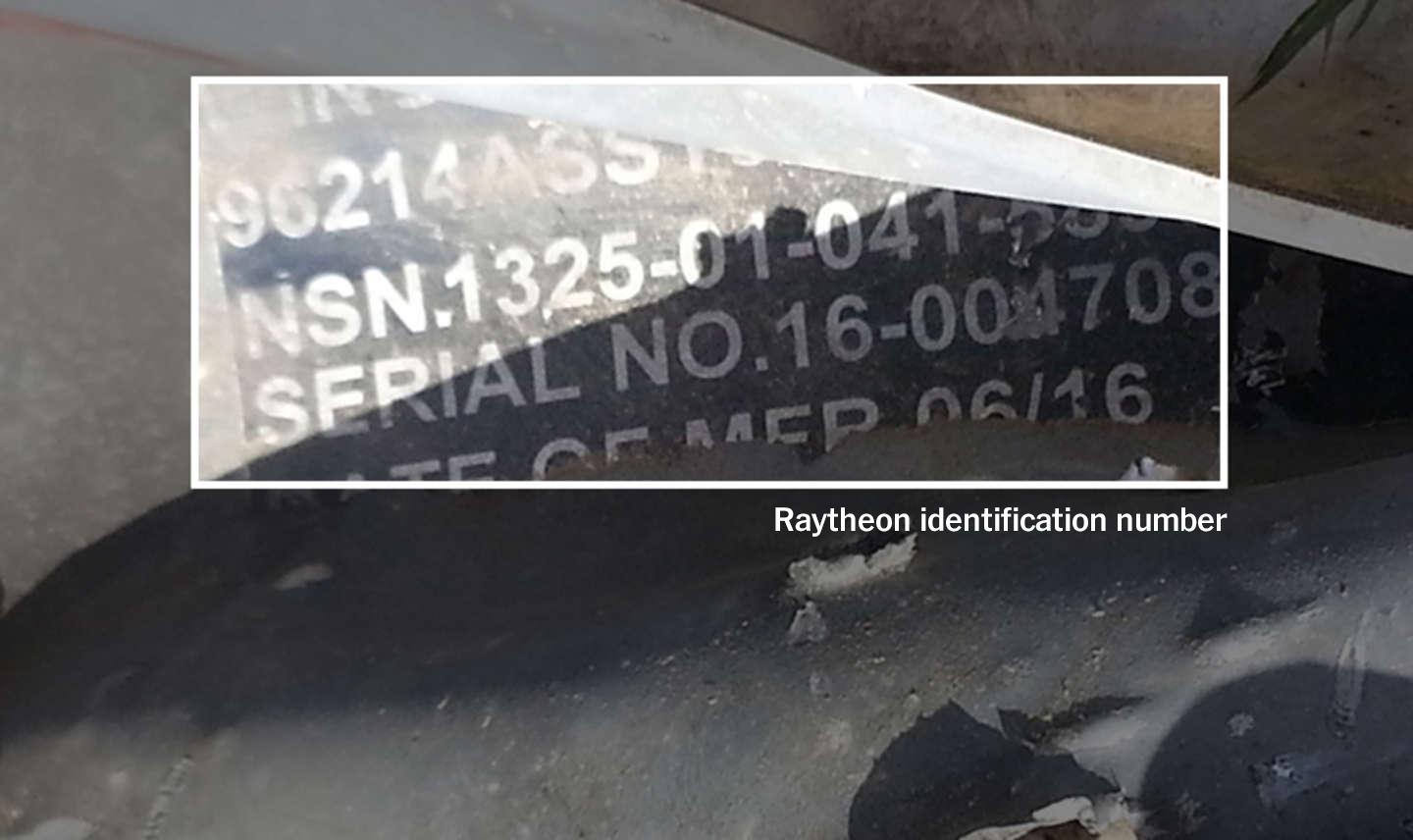

In order to secure the lucrative Saudi deals, Raytheon took advantage of federal loopholes by sending former State Department officials to lobby their former colleagues, and later benefitted by having their former top lobbyist, Mark Esper, appointed as Defense Secretary in June 2019 in a precursor to General Austin’s hiring.

Phyllis Bennis of the Institute for Policy Studies, a left-wing think-tank, told The Intercept that since “Raytheon manufactures the bomb components that are used in Yemen, [General Austin] bears a direct responsibility [for war crimes and civilian deaths]. He was making money as a board member of this company that is directly responsible for the death and destruction there.”
William Hartung, the director of the arms and security project for the Center for International Policy, said that “picking Austin was tantamount to making the position of Secretary of Defense the Secretary of Defense contractors.”
Raytheon’s 2021 Pentagon Contracts
Fitting with Hartung’s assessment, Raytheon has benefitted from multi-million-dollar government contracts on a near-daily basis since Austin has taken charge at the Pentagon.
On February 1st, the company secured a whopping $290,704,534 government contract to produce equipment for depot maintenance facilities and services in support of the F-35 Lightning II, which military analyst Pierre Sprey characterized as “overweight and dangerous.”

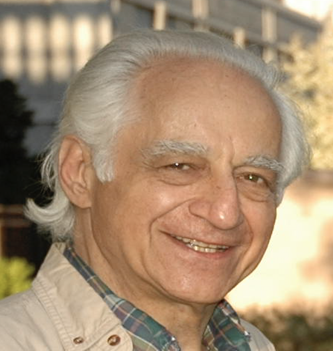

On March 26th, Raytheon received another huge contract valued at $518,443,821 to produce advanced medium range air-to-air missiles (AMRAAM), which have been credited with air-to-air kills in conflicts over Iraq, Bosnia, Kashmir and Syria.
On February 26th, Raytheon was awarded an $18,662,845 contract to provide support services for a Javelin anti-tank weapons system, which has been provided to Ukraine for use against Russian-backed separatist forces in eastern Ukraine.

On the same day, Raytheon was awarded a $32,853,210 contract for autonomous swarm strike loitering munitions, also known as “suicide drones,” which can be launched from unmanned surface and underwater vessels.
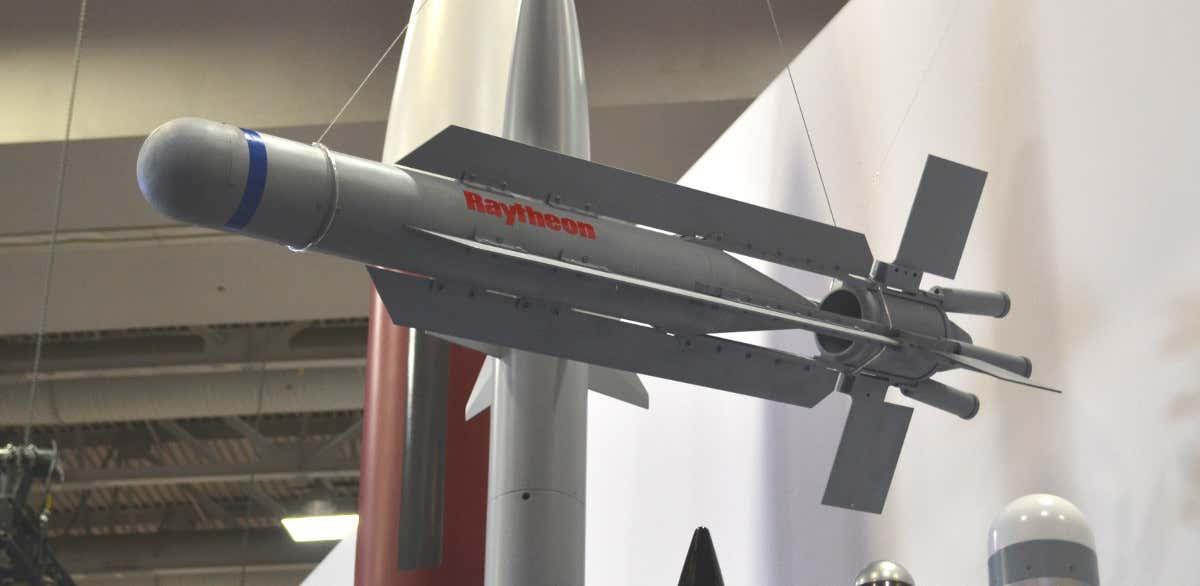
March 23rd was another good day for Raytheon with the receipt of a $63,301,453 contract for repair of an APG G5-73 all weather-sensor radar system, which is operational in the U.S. Navy’s F-18 fighter jet, and another $10,246,288 contract for repair of military jet engines.

The company had yet more cause for celebration on March 30th, when Raytheon’s Tucson, Arizona branch received a $130 million contract for upgrades to the Rolling Airframe Missile Block 2/2A Guided Missile Round Pack, which is designed to protect U.S. Navy ships from incoming missiles.

The next day, more champagne corks in company offices were likely popped with two separate contracts amounting to $138 million—one for more F-35 maintenance work and another for the production of mine-hunting sonars.
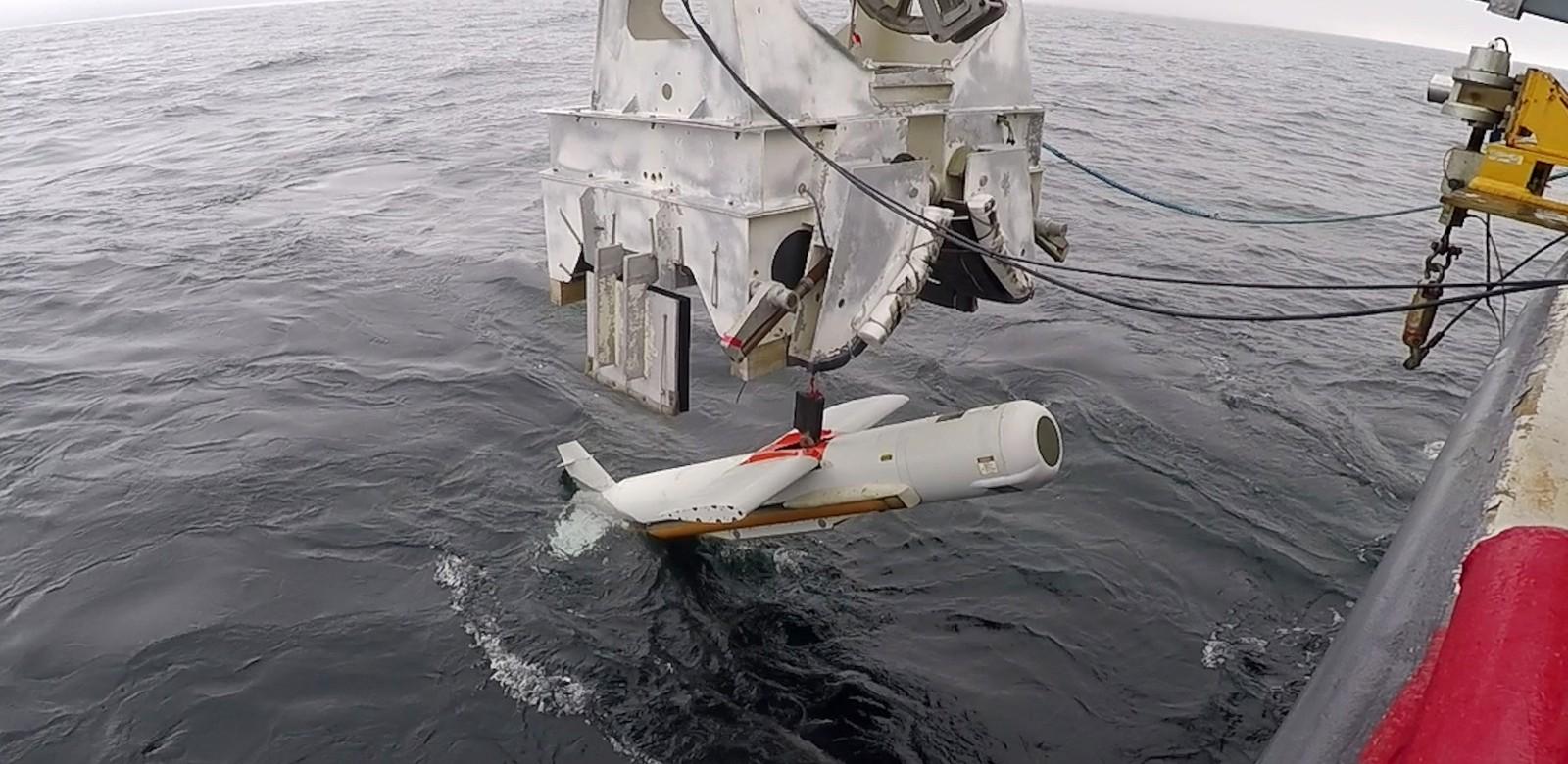
Promoting More War
Though Austin claims to have recused himself from decisions involving Raytheon, the Pentagon under his direction is providing his old company with huge contracts on a daily basis that is bolstering its profits and stock price.
Austin furthermore has used his new bully pulpit to advocate for yet greater levels of military spending—to the benefit of Raytheon.
On February 25th, for example, on a visit to the U.S.S. Nimitz, Austin emphasized the need for U.S. warships throughout the globe to deter security threats—from China to Iran. A week later on a tour of Southeast Asia with Secretary of State Antony Blinken, Austin warned about China again and the North Korean nuclear threat and pledged that the U.S. would maintain a robust military presence in the Indo-Pacific.
He further cautioned North Korea that the United States, following military exercises with South Korea, was “ready to fight tonight.”
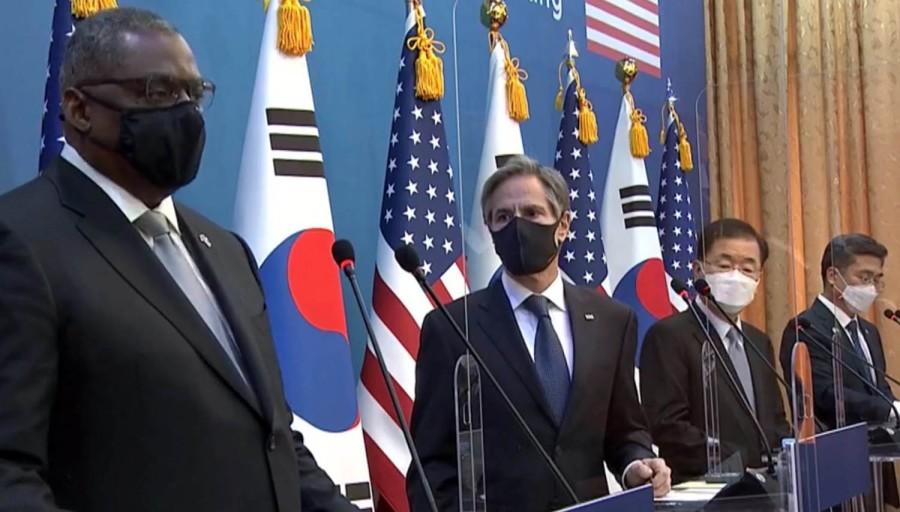
When fighting resumed in Eastern Ukraine in early April, Austin assured Ukraine’s Defense Minister Andrii Taran of the “U.S. commitment to building the capacity of Ukraine’s forces to defend more effectively against [supposed] Russian aggression”–which was demonstrated by a recent $125 million military aid package–and took to Twitter to reaffirm the U.S.’s “unwavering support for Ukraine’s sovereignty, territorial integrity, and Euro-Atlantic aspirations.”
The latter implied the joining of the European Union (EU) and North Atlantic Treaty Organization (NATO), which would inevitably escalate conflict between the world’s two major nuclear-armed powers (the U.S. and Russia).
On April 13th, Austin announced that the United States would increase its military presence in Germany by about 500 personnel and was scuttling plans introduced by President Donald Trump for a large troop reduction in Europe.
Austin meanwhile in Tel Aviv affirmed the U.S. “ironclad commitment” to Israel, which receives a record $3.8 billion in U.S. military aid each year, and on a visit to Afghanistan stated that the Biden administration wanted to see a “responsible end” to the Afghan war, but that the “level of violence must decrease” for “fruitful diplomacy” to have a chance.

These comments and many others were music to the ears of Raytheon, which gave $506,424 in donations to Biden’s presidential campaign.
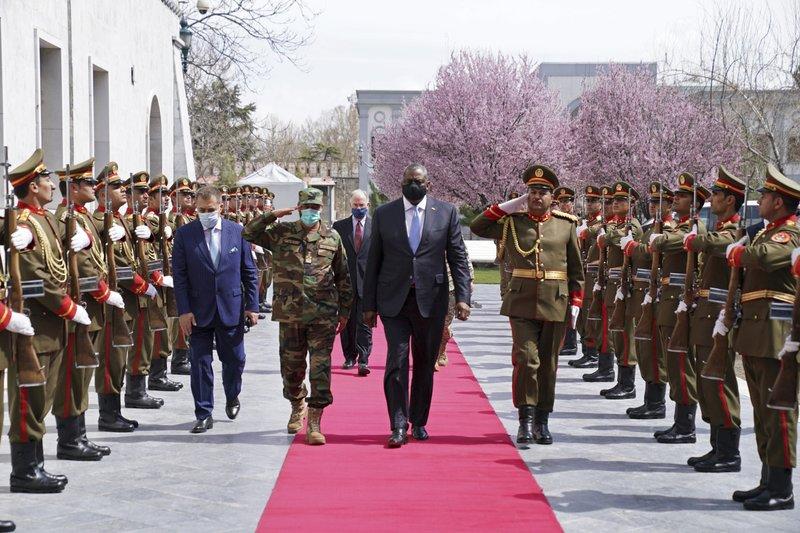
A Soldier’s Soldier
Besides his connection to Raytheon, Austin’s appointment as Pentagon chief was controversial because he had not been retired from the military for the requisite seven years and required a legal waiver.
Traditionally, the role of Defense Secretary is supposed to be a civilian position, ensuring the U.S.’s military apparatus is led not by a warfighter, but a policymaker. That requirement is laid out in the National Security Act of 1947 that established the Defense Department.
Heralded as a “soldier’s soldier” who would endure hardships with his troops, the 6’4” tall Austin graduated from West Point in 1975, and led infantry troops in the capture of Baghdad during the 2003 Operation Iraqi Freedom.
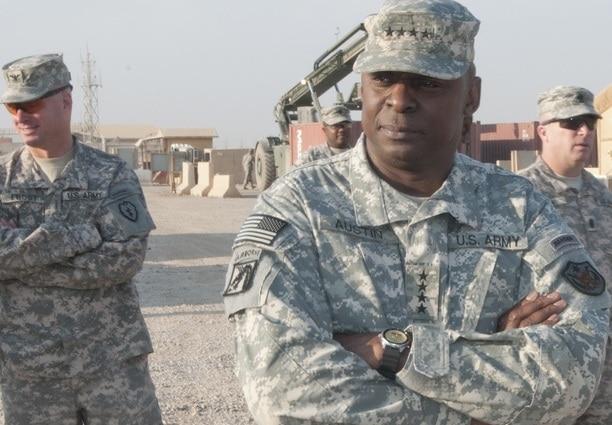
After a stint commanding the 10th Mountain Division in Afghanistan, Austin was appointed as chief of staff of the U.S. Central Command at McDill Air Force Base in Tampa, Florida, a high-tech command post where military officers could watch live imagery on plasma screens and order air-strikes through the Pentagon’s secure internet server.

Groomed for high military command by Admiral Mike Mullen, Chairman of the Joint Chiefs of Staff from 2007 to 2011, Austin was appointed as Commanding General of U.S. forces in Iraq in 2010, and Commander of the U.S. Central Command (CENTCOM), which is responsible for all military operations in the Middle East, by President Obama in 2013.

In this latter capacity, Austin drafted a war plan—approved by Obama—that allowed the U.S. military for the first time to directly provide ammunition and weapons to Syrian opposition forces, who included Islamic jihadists.
President Obama also endorsed General Austin’s idea to increase the air campaign on Islamic State of Iraq and the Levant (ISIS) from Incirlik Air Base in Turkey.
The result was an increase in civilian deaths. Journalists Anand Gopal and Azmat Khat determined that one in five of the 27,500 coalition air strikes in the 2nd Iraq War resulted in at least one civilian death, more than 31 times the number that was publicly acknowledged.

Austin’s personal history and connection to the military and Raytheon mark him as a fitting Pentagon chief in an era of destructive militarism and creeping fascism in the U.S.

When civilians no longer control the key institutions of government and war industries ensure the perpetuation of endless wars from which they make obscene profits, the political system can no longer be defined as a democracy.

-
Secretary of State Antony Blinken was a partner at Pine Island Capital. ↑
-
“People were on fire, and some people were burned alive,” one survivor, 42-year-old Hassan Jubran, told human rights workers. “There were also many children,” he said. “There were three children whose bodies were completely torn apart and strewn all over the place.” ↑
CovertAction Magazine is made possible by subscriptions, orders and donations from readers like you.
Blow the Whistle on U.S. Imperialism
Click the whistle and donate
When you donate to CovertAction Magazine, you are supporting investigative journalism. Your contributions go directly to supporting the development, production, editing, and dissemination of the Magazine.
CovertAction Magazine does not receive corporate or government sponsorship. Yet, we hold a steadfast commitment to providing compensation for writers, editorial and technical support. Your support helps facilitate this compensation as well as increase the caliber of this work.
Please make a donation by clicking on the donate logo above and enter the amount and your credit or debit card information.
CovertAction Institute, Inc. (CAI) is a 501(c)(3) non-profit organization and your gift is tax-deductible for federal income purposes. CAI’s tax-exempt ID number is 87-2461683.
We sincerely thank you for your support.
Disclaimer: The contents of this article are the sole responsibility of the author(s). CovertAction Institute, Inc. (CAI), including its Board of Directors (BD), Editorial Board (EB), Advisory Board (AB), staff, volunteers and its projects (including CovertAction Magazine) are not responsible for any inaccurate or incorrect statement in this article. This article also does not necessarily represent the views the BD, the EB, the AB, staff, volunteers, or any members of its projects.
Differing viewpoints: CAM publishes articles with differing viewpoints in an effort to nurture vibrant debate and thoughtful critical analysis. Feel free to comment on the articles in the comment section and/or send your letters to the Editors, which we will publish in the Letters column.
Copyrighted Material: This web site may contain copyrighted material the use of which has not always been specifically authorized by the copyright owner. As a not-for-profit charitable organization incorporated in the State of New York, we are making such material available in an effort to advance the understanding of humanity’s problems and hopefully to help find solutions for those problems. We believe this constitutes a ‘fair use’ of any such copyrighted material as provided for in section 107 of the US Copyright Law. You can read more about ‘fair use’ and US Copyright Law at the Legal Information Institute of Cornell Law School.
Republishing: CovertAction Magazine (CAM) grants permission to cross-post CAM articles on not-for-profit community internet sites as long as the source is acknowledged together with a hyperlink to the original CovertAction Magazine article. Also, kindly let us know at info@CovertActionMagazine.com. For publication of CAM articles in print or other forms including commercial internet sites, contact: info@CovertActionMagazine.com.
By using this site, you agree to these terms above.
About the Author

Jeremy Kuzmarov holds a Ph.D. in American history from Brandeis University and has taught at numerous colleges across the United States. He is regularly sought out as an expert on U.S. history and politics for radio and TV programs and co-hosts a radio show on New York Public Radio and on Progressive Radio News Network called “Uncontrolled Opposition.”
He is Managing Editor of CovertAction Magazine and is the author of six books on U.S. foreign policy, including Obama’s Unending Wars (Clarity Press, 2019), The Russians Are Coming, Again, with John Marciano (Monthly Review Press, 2018), Warmonger. How Clinton’s Malign Foreign Policy Launched the U.S. Trajectory From Bush II to Biden (Clarity Press, 2023); and with Dan Kovalik, Syria: Anatomy of Regime Change (Baraka Books, 2025).
Besides these books, Kuzmarov has published hundreds of articles and contributed to numerous edited volumes, including one in the prestigious Oxford History of Counterinsurgency .
He can be reached at jkuzmarov2@gmail.com and found on substack here.











[…] politicians, for think tanks with evil intentions, for the multi billion dollar arms industry and for greedy […]
[…] SpaceX, Northrop Grumman, Leidos, L3Harris, and Raytheon – the company where Lloyd Austin served as a board member until he was appointed Secretary of […]
[…] SpaceX, Northrop Grumman, Leidos, L3Harris, and Raytheon – the company where Lloyd Austin served as a board member until he was appointed Secretary of […]
[…] positioned to pull this off. In fact, during his first three months as defense secretary, he awarded over $2.36 billion in contracts to the missile manufacturer he once faithfully […]
[…] positioned to pull this off. In fact, during his first three months as defense secretary, he awarded over $2.36 billion in contracts to the missile manufacturer he once faithfully […]
[…] Lloyd Austin — Formally a board member for a weapons manufacturer Raytheon, who has been handing out billion dollar contracts to his former employer like […]
[…] Covert Action (Jeremy Kuzmarov) – Defense Secretary Lloyd Austin—Former Member of Raytheon Board of Directors—Has Awarded Over $2.… […]
[…] April 19th, Jeremy Kuzmarov at Covert Action Magazine headlined “Defense Secretary Lloyd Austin — Former Member of Raytheon Board of Directors — Has Awarded O… and he documented that Raytheon had previously sold billions of dollars worth of the weapons that […]
[…] April 19th, Jeremy Kuzmarov at Covert Action Magazine headlined “Defense Secretary Lloyd Austin — Former Member of Raytheon Board of Directors — Has Awarded O… and he documented that Raytheon had previously sold billions of dollars worth of the weapons that […]
[…] more, human rights workers discovered a bomb shard bearing the identification number of Raytheon.[2] It was one of at least 12 attacks on civilians that human rights groups tied to Raytheon’s […]
[…] April 19th, Jeremy Kuzmarov at Covert Action Magazine headlined “Defense Secretary Lloyd Austin — Former Member of Raytheon Board of Directors — Has Awarded O… and he documented that Raytheon had previously sold billions of dollars worth of the weapons that […]
[…] Defense Secretary Lloyd Austin—Former Member of Raytheon Board of Directors—Has Awarded Over $2.… […]
According to one investment analyst here is a summary of Raytheon contracts in the first quarter of 2021
For the first three months of 2021, Raytheon Technologies received $1.9 billion in contracts compared to $5.1 billion in 2020, $1.7 billion in 2019 and $4.4 billion in 2018 (all numbers excluding IDIQs) So, the contract awards are lower year-over-year but we do see that every other year there is a year with higher inflow for the first quarter and this year happens to be the occasional down year. Obligated funds dropped from $2.6 billion to $1.4 billion, although marking a year-over-year decline it also is in line with the levels observed in prior years.
[…] Jeremy Kuzmarov, Published by Covert Action Magazine, 19 April […]
[…] USA’s Defense Secretary Lloyd Austin – a ”soldier’s soldier” and a useful purchaser for Raytheon’s military merchandise. […]
[…] These initiatives, however, have not prevented Austin from using his position to bolster Raytheon’s fortunes. Nor those of other defense contractors on whose board he has sat such as Booz Allen Hamilton, the world’s “most profitable spy organization,” according to Bloomberg News, and Pine Island Capital, a private equity firm that invests in military industry.[1] […]
During the Trump administration as well as previous administrations billions of dollars of contracts were given to Raytheon along with contracts to hundreds of other companies so even if John Doe had been chosen to be Secretary of Defense the government would have continued to give contracts to Raytheon. So I do not think Lloyd Austin is doing anything different from what John Doe would have done and thus I do not think there is any conflict of interest on the part of Lloyd Austin. One could criticize Lloyd for his excess and unnecessary spending, that would be perfectly fine however.